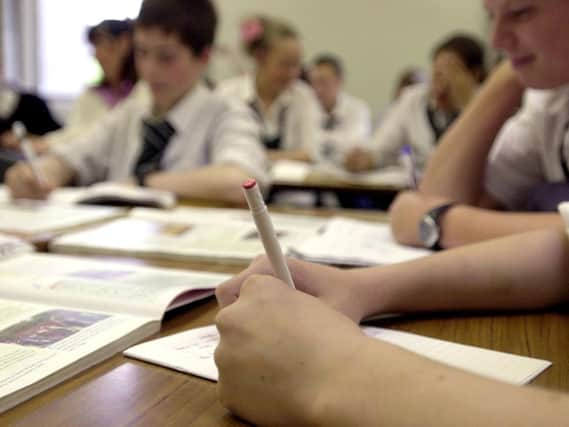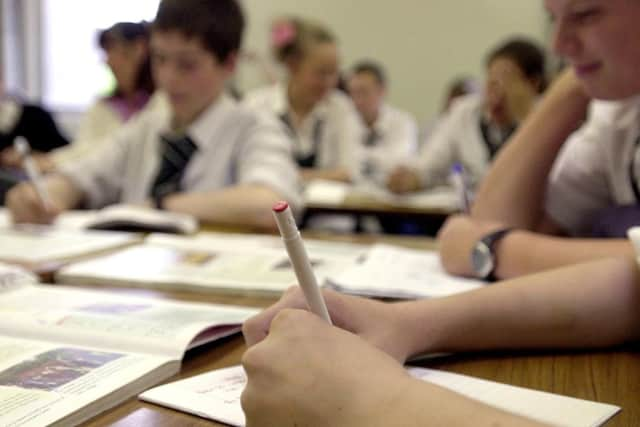GCSE Results Day 2018: What to do next if your grades didn't match expetations


Sure, not achieving the marks you expected is terribly disappointing, and the thought of having to tell everyone how badly you did - especially grinning pals who have aced their exams - is enough to fill you with dread.
But while life would appear to be much rosier had you passed all your exams, there are still plenty of opportunities for you.
Advertisement
Hide AdAdvertisement
Hide AdAfter GCSEs, you could continue studying subjects you like, take vocational qualifications, an apprenticeship, or work or volunteer while studying part-time.


GCSE grades haven't come up to expectations?
If you haven't done as well as you'd expected, there is a lot that can be done in the next few weeks to influence the future - but be prepared to act now.
Maths and English are by the far the most important subjects. If you haven't passed one of them, speak to the head of sixth form or the college you hope to attend. Plenty of schools and colleges offer classes to prepare you to re-sit these GCSEs or provide alternative courses.
If that's not the case, check with other colleges in your area to see if they offer additional classes.
Advertisement
Hide AdAdvertisement
Hide AdIf it's just one grade below what is required to get into college, you can speak to the head of sixth form or the college you applied to - depending on take up of the course, they may still accommodate you with the lower grades.
Alternatively, they may offer you a place but on a different subject or course.
Need to do re-sits?
If you don't have the grades to go to college, you still have a number of different options. You can re-sit one or more of the subjects you failed to help boost your overall grade, or if you think there was an error with the marking of your paper, you can ask for it to be re-marked.
This can be arranged through your school, but you'll have to pay a fee, which will only be reimbursed if there is a grade change.
Advertisement
Hide AdAdvertisement
Hide AdColleges and training providers offer a wide range of training courses that are part-time, including A-Levels and work-related qualifications, such as BTECs or NVQs (see below).
BTECs: These are vocational qualifications in subjects ranging from business studies to engineering.
NVQs: A National Vocational Qualification (NVQ) is work-related and designed to help you gain the skills and knowledge needed to do certain jobs
Apprenticeships
Maybe you've had enough of the classroom full-time and want to learn a new profession, trade or skill. If that's the case, this could be the way to go. Apprenticeships are proper jobs with proper training - you earn while you learn and pick up qualifications as you go.
Advertisement
Hide AdAdvertisement
Hide AdSchemes take between one and four years to complete and run on three different levels.
Traineeships
A traineeship gets you ready for work or for doing an apprenticeship. They last from six weeks to six months and provide essential work preparation training, literacy and numeracy skills and work experience to get an apprenticeship or other job.
Work or volunteer while studying part-time
There's always the option to combine training or studying for a qualification and work at the same time. It doesn't need to be a paid job, either - you could volunteer on a project or with a charity, or get yourself a work-experience placement in a job area that appeals to you.
Need more advice?
If you want someone to talk to, the National Careers Service - www.nationalcareersservice.direct.gov.uk - can aid you.
You can contact an adviser by telephone on: 0800 100 900
Online: Use their webchat, which is available from 8am-10pm every day.
Â